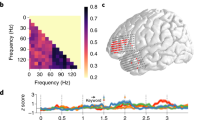Abstract
This article deals with the role of functional cerebral asymmetry in the analysis of lexical and grammatical material. The author examined healthy test subjects with various types of cerebral organization of speech activity; i.e., with speech lateralization in the left and right hemispheres and bilateral speech lateralization. The test subjects with speech lateralization in the left hemisphere and bilateral lateralization are shown to prefer the formal-grammatical principle of the classification of both lexemes (distinguishing antonyms and synonyms) and grammatical constructions (distinguishing active and passive sentences). The test subjects with speech lateralization in the right hemisphere fail to follow the formal-grammatical principle of the classification of either lexemes (synonyms disappear) or grammatical constructions (active and passive sentences are united). The data obtained show that the linguistic abilities are determined by the functional specialization of the hemispheres.
Similar content being viewed by others
REFERENCES
Balonov, L.Ya. and Deglin, V.L., Slukh i rech' dominantnogo i nedominantnogo polushariya (Hearing and Speech of the Dominant and Nondominant Hemispheres), Leningrad: Nauka, 1976.
Deglin, V.L., Paradoksal'nye storony chelovecheskogo myshleniya: neiropsikhologicheskii analiz (Paradoxical Aspects of Human Thinking: Neuropsychological Analysis), St. Petersburg, 1996.
Trachenko, O.P., The Factors That Determine the Lateralization of the Perception of Words, in Neiropsikhologicheskii analiz mezhpolusharnoi asimmetrii mozga (Neuropsychological Analysis of Interhemispheric Cerebral Asymmetry), Moscow: Mosk. Gos. Univ., 1986, p. 57.
Chernigovskaya, T.V. and Deglin, V.L., Metaphoric and Syllogistical Thinking as a Manifestation of Functional Cerebral Asymmetry, in Semiotika prostranstva i prostranstvo semiotiki. Trudy po znakovym sistemam. Uch. zap. TGU (Semiotics of the Space and the Space of Semiotics: Works on Sign Systems: Sci. Trans. Tartu State Univ.), Tartu, 1986, vol. 19, p. 68.
Deglin, V., Trachenko, O., and Chernigovskaya, T., Sound Shape of Language and Cerebral Asymmetry, XI ICPhS, 1986, no. 3, p. 266.
Eviatar, Z., Menn, L., and Zaidel, E., Concreteness: Nouns, Verbs, and Hemispheres, Cortex, 1990, vol. 26, no. 4, p. 611.
Pally, R. and Angeles, L., Bilaterality: Hemispheric Specialisation and Integration, Int. J. Psycho-Anal., 1998, vol. 79, no. 4, p. 565.
Zaidel, E. and Peters, A.M., Phonological Encoding and Ideographic Reading by the Disconnected Right Hemisphere: Two Case Studies, Brain Lang., 1981, vol. 14, no. 2, p. 205.
Akhutina, T.V., Difficulties of the Grammatical Construction Understanding in Aphasia Patients, in Problemy afazii i vosstanovitel'nogo obucheniya (Problems of Aphasia and Rehabilitative Teaching), Moscow: Mosk. Gos. Univ., 1979, p. 40.
Akhutina, T.V., Normal Neurolinguistics, 1–ya mezhdunarodnaya konferentsiya pamyati A.R. Luriya (1st Int. Conf. in Memoriam of A.R. Luriya), Khomskaya, E.D. and Akhutina, T.V., Eds., Moscow, 1998, p. 289.
Luriya, A.R., Two Kinds of Disorder of the Understanding of Grammatical Constructions, in Problemy afazii i vosstanovitel'nogo obucheniya (Problems of Aphasia and Rehabilitative Teaching), Moscow: Mosk. Gos. Univ., 1979, p. 15.
Trachenko, O.P., Repeated Dichotic Testing of Persons with the Leading Left Ear, Fiziol. Chel., 1991, vol. 17, no. 3, p. 34.
Trachenko, O.P., Multiple Dichotic Testing of Subjects with Various Types of the Hemispheric Domination, in Neiropsikhologiya segodnya (Neuropsychology Today), Moscow: Mosk. Gos. Univ., 1995, p. 184.
Deglin, V.L., Chernigovskaya, T.V., and Menshutkin, V.V., Analysis of Lexical and Grammatical Material under Conditions of Transient Inactivation of the Left and Right Cerebral Hemispheres, Fiziol. Chel., 1985, vol. 11, no. 1, p. 44.
Gazzaniga, M.S., Consciousness and the Cerebral Hemispheres: The Cognitive Neuroscience, Cambridge (Mass.): MIT, 1995.
Khomskaya, E.D., Efimova, I.V., Budyka, E.V., and Enikolopova, E.V., Neiropsikhologiya individual'nykh razlichii (Neuropsychology of Individual Differences), Moscow, 1997.
Khomskaya, E.D., Lateral Organization of the Brain as the Neuropsychological Basis of Normal Typology, 1–ya mezhdunarodnaya konferentsiya pamyati A.R. Luriya (1st Int. Conf. in Memoriam of A.R. Luriya), Khomskaya, E.D. and Akhutina, T.V., Eds., Moscow, 1998, p. 138.
Ule, D. and Kendall, M., Translated under the title Teoriya statistiki (Theory of Statistics), Moscow: Gosstatizdat, 1960.
Plyuta, V., Sravnitel'nyi mnogomernyi analiz v ekonomicheskikh issledovaniyakh (Comparative Multidimensional Analysis in Economic Studies), Moscow: Statistika, 1980.
Kotik, B.S., Mezhpolusharnoe vzaimodeistvie u cheloveka (Interhemispheric Interaction in Human), Rostov-on-Don: Rostov-on-Don Gos. Univ., 1992.
Chernigovskaya, T.V., Balonov, L.Ya., and Deglin, V.L., Bilingualism and Functional Cerebral Asymmetry, in Tekst i kul'tura: trudy po znakovym sistemam. Uch.zap. TGU (Text and Culture: Works on Sign Systems: Sci. Trans. Tartu State Univ.), Tartu, 1983, vol. 16, p. 62.
Fillmore, C., The Case for Case: Universals in Linguistic Theory, Bach., E., Ed., New York, 1968.
Chafe, W.L., Meaning and the Structure of Language, Chicago-London, Univ. Chicago Press, 1971.
Chomsky, N., Syntactic Structures, The Hague-Mounton, 1957.
Vygodskii, L.S., Problems of General Psychology: Thinking and Speech, in Polnoe sobranie sochinenii v 6 tomakh (Collected Works in 6 Volumes), Moscow: Pedagogika, 1982, vol. 2.
Luriya, A.R., Yazyk i soznanie (Language and Consciousness), Moscow: Mosk. Gos. Univ., 1979.
Leont'ev, A.A., Psikholingvisticheskie edinitsy i porozhdenie rechevogo vyskazyvaniya (Psycholinguistic Units and Generation of a Speech Statement), Moscow, 1969.
Akhutina, T.V. Porozhdenie rechi. Neirolingvisticheskii analiz sintaksisa (Speech Generation: Neurolinguistic Analysis of Syntax), Moscow: Mosk. Gos. Univ., 1989.
Leont'ev, A.A., Osnovy psikholingvistiki (Fundamentals of Psycholinguistics), Moscow, 1999.
McNeil, D., The Acquisition of Language, in The Study of Development Psycholinguistics, New York: Harper and Row, 1970, p. 41.
Bronowski, J. and Bellugi, U., Language, Name, and Concept, Science, 1980, vol. 1968, no. 3932, p. 669.
Dale, P.S., Language Development: Structure and Functions, Illinois: Dryden, 1972.
Trachenko, O.P., Phonematic Analysis and Functional Cerebral Asymmetry, Sensor. Sist., 1998, vol. 12, no. 3, p. 312.
Author information
Authors and Affiliations
Rights and permissions
About this article
Cite this article
Trachenko, O.P. Functional Cerebral Asymmetry and Principles of Analysis of Lexical and Grammatical Material. Human Physiology 27, 24–30 (2001). https://doi.org/10.1023/A:1007199006081
Issue Date:
DOI: https://doi.org/10.1023/A:1007199006081



